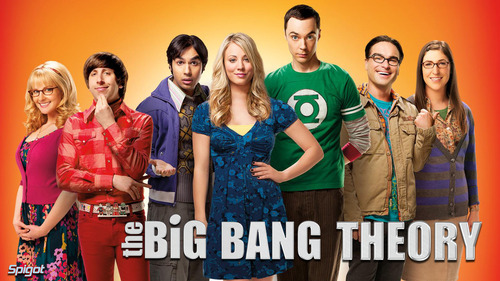We Can’t All be like Sheldon of The Big Bang Theory
Am I doing anything right? This is the question that confronted me while reading Failure of Nerve by Edwin Friedman.
My church recently hired a new Executive Director /Pastor. She has been very methodical in transforming our 40 employees into a very organized and accountable group of pastors and assistants – or so I thought.
I conduct weekly “folder” meetings with those who report to me, analyzing my colleagues’ work and their personal leadership and spiritual growth. Metrics are used and many types of books are recommended to assess and develop their leadership, conflict resolution skills, and in understanding of our personalities. We also train on recognition of a person’s ethnicity and culture and how those incorporate into a staff landscape. But to that, Friedman says “no, don’t do it!”
Instead of relying on the typical business models, data, methods and techniques, we should be shouting, out “vision” and reclaiming the type of Old World leadership that brought America and Europe to a new level of sophistication 500 years ago. We need to be differentiating ourselves from other’s feelings, demands and reactionary decisions. Instead, we need to focus on one’s own growth, which will optimize our decision-making ability. Maybe we’ve got it backwards?
Friedman believes our society is in regression regarding leadership and uses an example that hit home. He mentions a discussion between members who wanted the homeless to pay a little for meals instead of receiving free assistance. As a missions leader, this issue of how to help the needy comes up often, and I agree with his thoughts of requiring something financial from those who request.
People will ask me, “should I give money to the beggars on the street corners holding cardboard signs that say need help?” Every agency that works in the urban centers have advises me to say “no” – but that message falls on deaf ears for the most part. I am pleased to say that we do support one feeding center that charges $2 per meal. It’s amazing how that simple relationship to normal society (charging instead of giving food for free) brings integrity and honor to those homeless who partake of the offer.
Our Christian teaching tells us to diminish our selfishness and instead, include everyone in discussions, giving value to all, going out of the way to help the least. But Friedman talks about discovering our “self” as a way to evolve someone out of a regressive situation. He talks about empathy and the dangers represented there in a similar way that Sheldon, the star of the hit TV show the Big Bang Theory, relates to those around him, detached and disassociated. I think Sheldon would be a hero in Friedman’s eyes. Perhaps so, but it makes for un-enjoyable evenings of conversation!
Differentiation caused me to reflect upon my wife, LeAnn, who has worked alongside me most of our married lives. As a pastor’s wife, this can be a blessing or curse. Most of my career has been involved in music. LeAnn played piano, sang in my choirs, helped sponsor youth choir trips and even sang solos at the last minute when needed. But now, much has changed and it follows Friedman’s central emphasis on differentiation. Since we’ve landed at a large church and I’m in missions rather than music, LeAnn doesn’t have to be a “part” of me. She can and has, picked her own areas of ministry, or decided not to participate in areas.
This has cause some “sabotage” as some want her to be what they, as church members, envision, but she is confident in where she is. She is also working full-time in the medical research field, with friends, colleagues and ideas completely different than those in the church where we go and in which I minister. I feel that she has differentiated herself for the first-time. She is confident and speaks her mind, unworried about how it will affect me. She has grown in her intellectual pursuits and because of this, our marriage is in the best shape it has ever been in – primarily because she is at peace with her own existence – as Friedman would state.
These ideas seem good until chapter 6 is read. One can see that Friedman is really “exposing the dirty laundry” of his personal feelings in this chapter. His five aspects of self-differentiation and “old-world explorer” examples push to the point of excess. The picture painted of one championing all aspects is sadly, a person that I would not want to be associated with.
This book has some great insight and provides a needed look in the mirror at the evolution of leadership but lacks basic understanding of human dignity. In the end however (quoting Friedman), I would rather be an animal than a tree!
Leave a Reply
You must be logged in to post a comment.